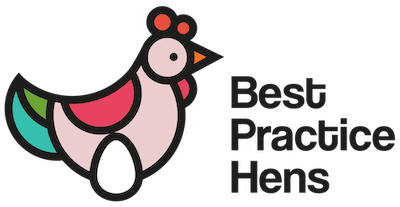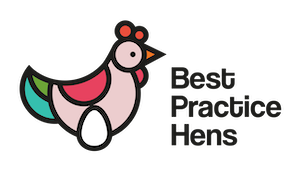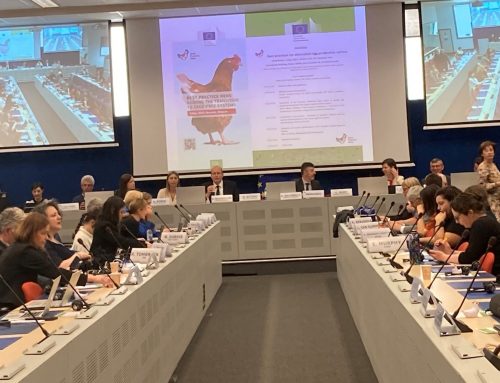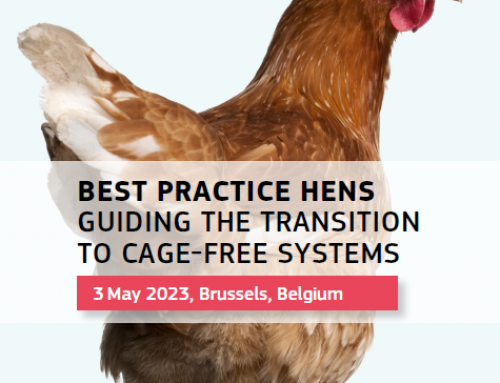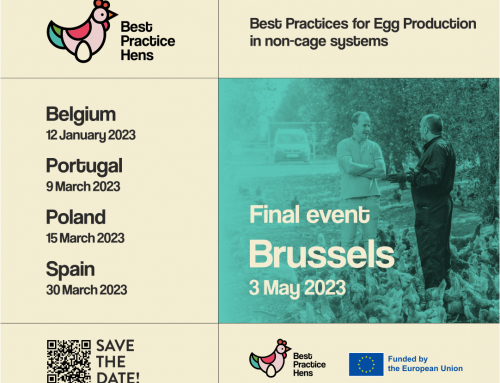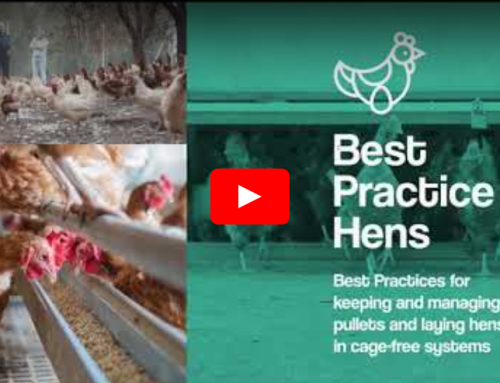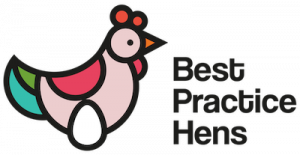
Third Press Release: Best Practices Hens, a project for alternative egg production systems, held its final conference in Brussels
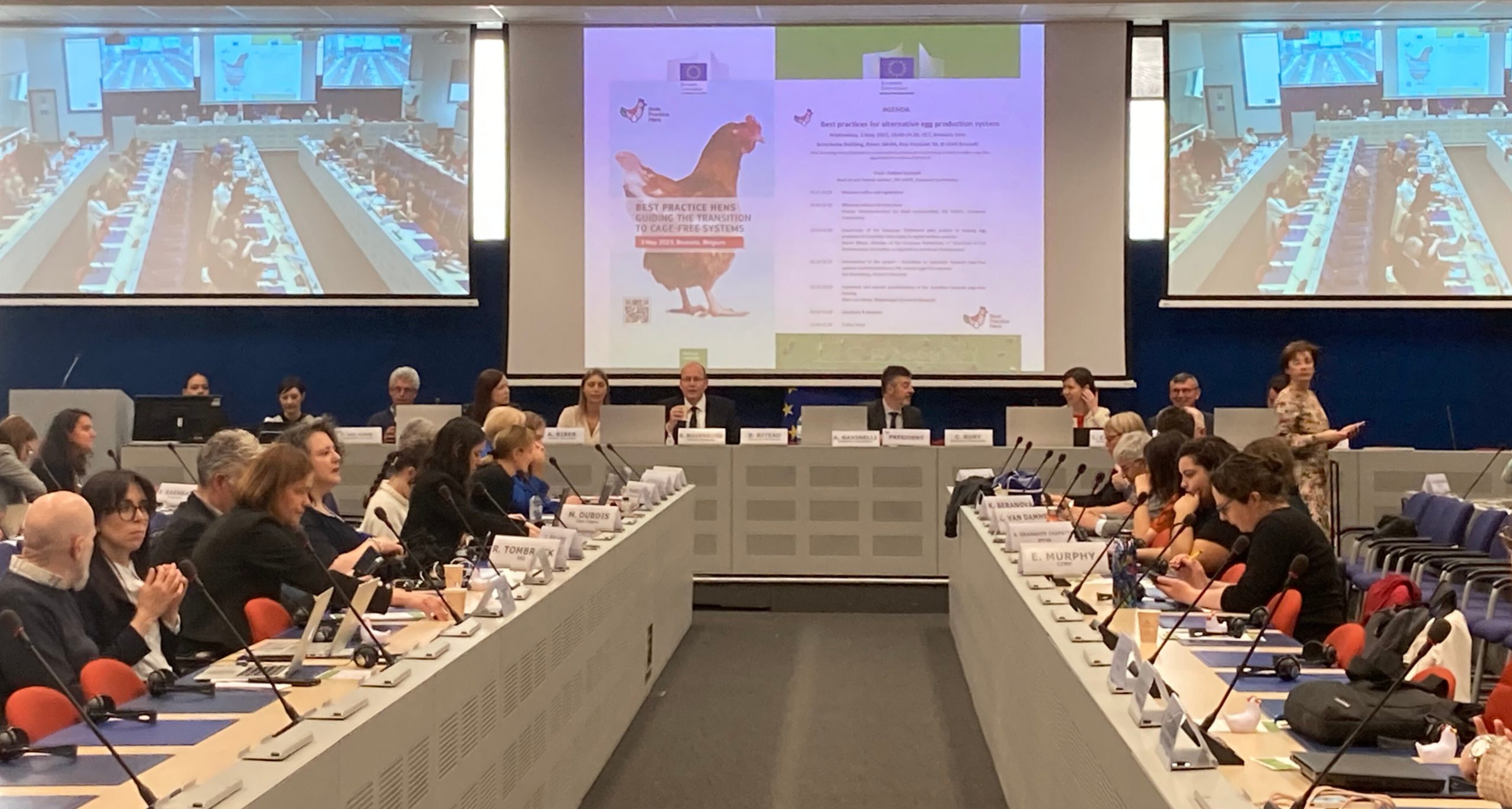
On 3rd May 2023, the results of a two-year European Parliament pilot project on ‘Best practices for alternative egg production systems’ were presented at the final conference in Brussels.
Around 100 participants attended the event at the European Commission premises, and approximately the same number of people followed the web-streaming, connecting even from the countries like Argentina, USA, or Taiwan.
The event was opened by Claire Bury, Deputy Director-General for food sustainability at DG SANTE, who provided the context of the start of the project. She pointed out that already around half of the eggs put on the market are coming from alternative systems, whether organic, free range or barn systems, proving that a transition to cage-free farming in the laying hens’ sector is feasible.
Benoît Biteau, Member of the European Parliament and 1st Vice-Chair of the Parliamentary Committee on Agriculture and Rural Development, in the name of the EP, expressed his strong support for the transition and for the future Commission proposal to phase-out the use of cages for pullets and laying hens. He said, “There is a clear desire to move away from cages, as cages limit the natural behaviour of hens. The EU Parliament envisions a move away from cage housing, and in order to realise this transition, and for that it is important to avoid competition with eggs and egg products from third countries with lower welfare standards”. Mr Biteau stressed that the exchange of knowledge and experience between EU Member States should be facilitated, this being an essential part of the pilot project.
In the following, four project members presented the methodology used and the main results obtained.
Professor Bas Rodenburg from Utrecht University in the Netherlands, the project leader, showed a video to present the main aspects of the project. He also presented the different cage-free housing systems for pullets and laying hens. He stressed the importance of having the housing system as similar as possible for both pullet and laying hens, allowing a smooth transition.
Peter van Horne from Wageningen Economic Research in the Netherlands spoke about the economics and market considerations of the transition towards cage-free systems. He explained the current situation in the EU, with 55% of hens in cage-free systems. Mr Van Horne pointed out that the production costs compared with furnished cages are 15% higher for indoor systems, 35% higher for free-range systems, and over 200% higher for organic systems (mainly due to higher feed costs).
Anja Riber, from Aarhus University in Denmark, presented the best practices for pullet rearing. She underlined the importance of high-quality rearing, as these first 17 weeks of life lay the foundation for a successful laying period. Ms Riber highlighted that the project had developed 31 practice abstracts and a welfare assessment protocol for farmers applying on-farm that are available through the project website. In addition, she stressed the importance of good training of farmers and staff, a good procedure for flock inspection, and good stockmanship.
Mona Giersberg, from Utrecht University in the Netherlands, presented the best practices for adult laying hens. Best practices were developed for some health management topics (biosecurity, red mites, endoparasites), feeding and drinking equipment, and feeding management, specifically for laying hens.
The event concluded with a round-table with Pekka Pessonen (COPA-COGECA), Birthe Steenberg (AVEC), Fabrizio Fabbri (Euro Coop), Jørgen Nyberg Larsen (EUWEP and EEPTA), Olga Kikou (CIWF) and Maya Cygańska (Eurogroup); moderated by Frédéric Vincent, from DG SANTE. Different points of view were shared from distinct perspectives. Topics such as egg labelling, environmental sustainability and the economic situation in Europe were the main points of the debate. The event ended with a networking lunch.

